What Is An HOA Fee? Everything You Need To Know
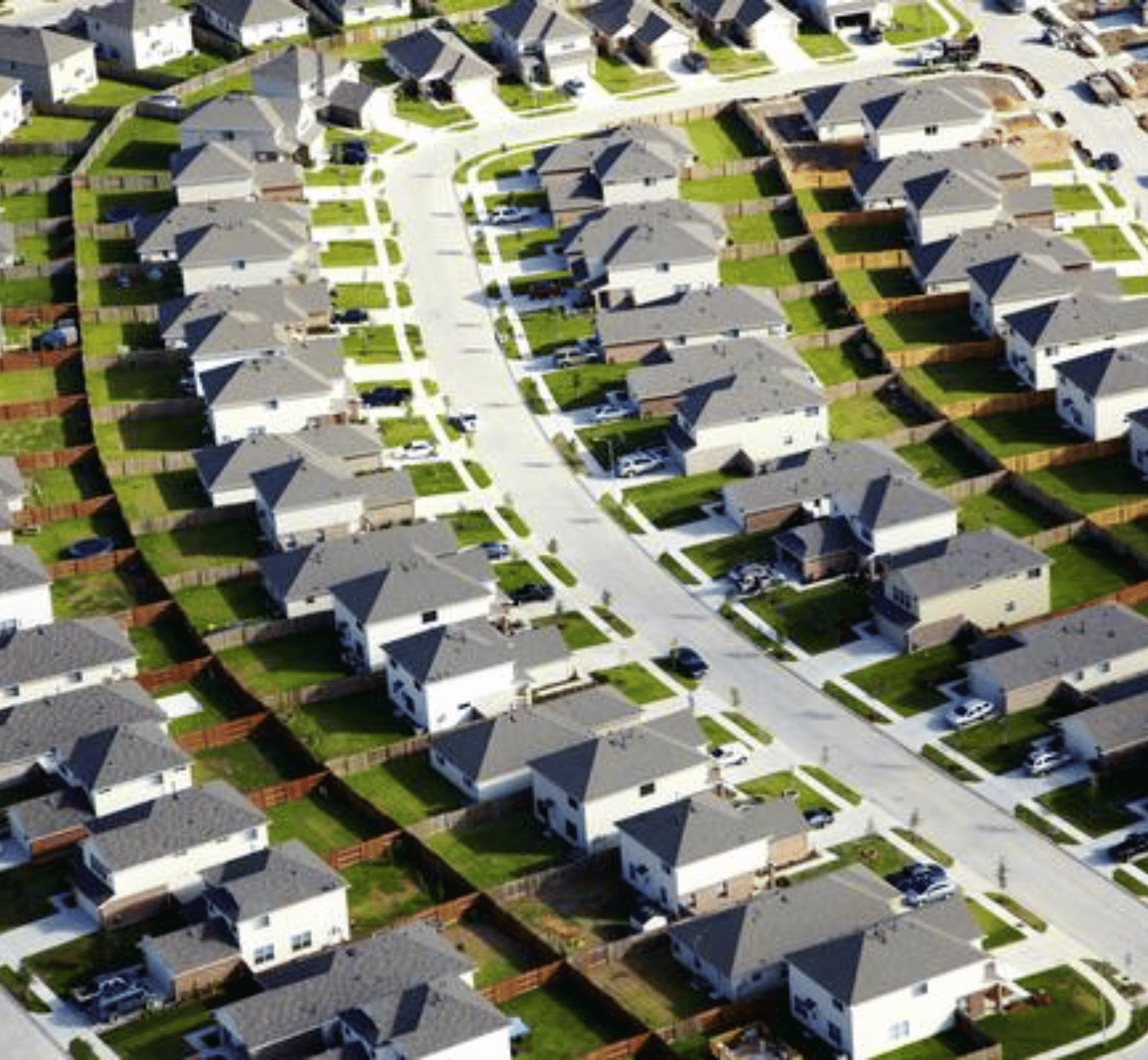
What Is An HOA Fee?
Do you live in an HOA community or plan to move to one? Follow along as we discuss what an HOA fee is, what your fee could entail, and more!
Living in a community run by a homeowner's association (HOA) is very common. While not every neighborhood is overseen by an HOA, many newer subdivisions are.
If you're purchasing a home in a homeowner's association and want more information about what that could mean, we've got you covered! There are many rules and fees that are associated with a homeowner's association, and we're going to discuss them all! Let's start with what an HOA is.
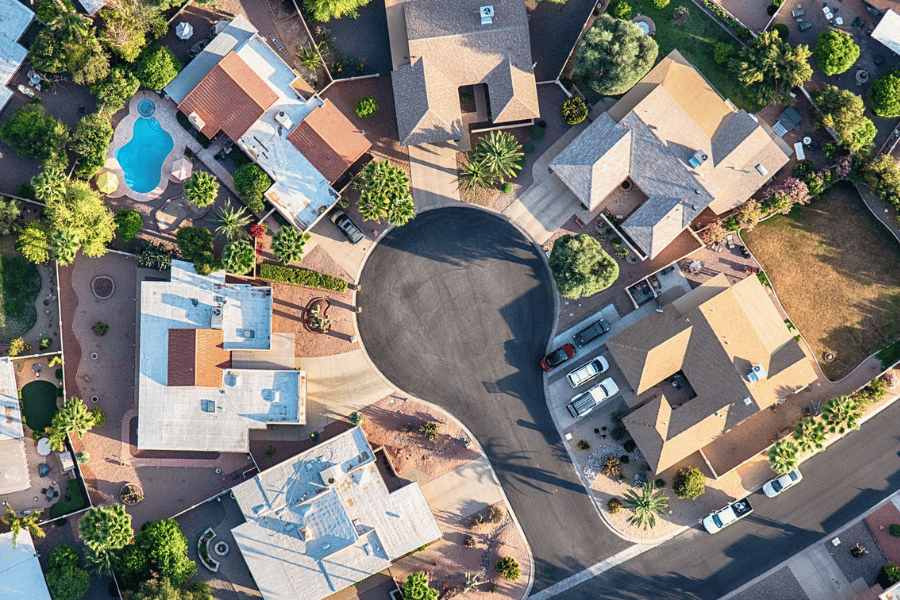
Chapters
What Is an HOA?
An HOA, aka homeowner's association, is a non-profit committee run by a board of directors that enforces neighborhood regulations. The board of directors is typically made up of neighborhood volunteers who devote their time to overseeing the maintenance and use of shared spaces and ensuring the CC&Rs (covenants, conditions, and restrictions) are followed by all.
HOA Fee's
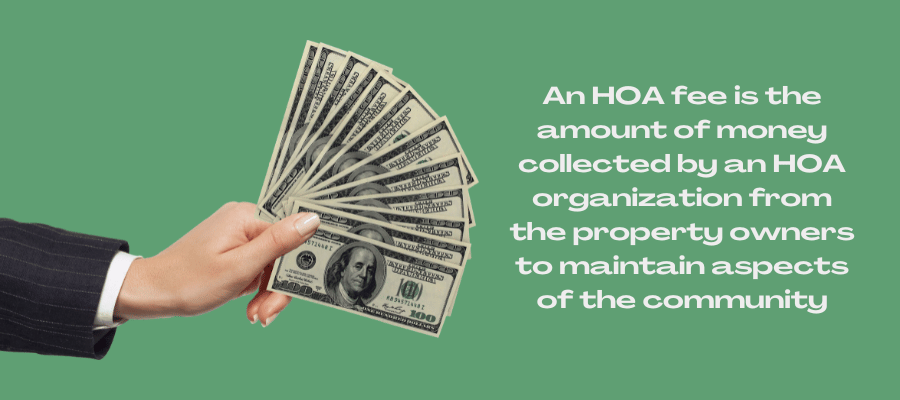
A homeowner's association fee is the amount of money collected by an HOA organization from the property owners to maintain aspects of the community. Your HOA fee mainly goes towards maintaining the common spaces & amenities, as well as the neighborhood's landscaping. When buying a home in a homeowner's association, you are automatically required to pay dues and officially become a member. Your HOA fee is typically due monthly but can also be an annual payment.
The fee you are required to pay will be disclosed to you before you become a member. In addition to the monthly or annual fees, the HOA may charge a one-time home stranger fee when you purchase your property. They can also impose special assessments to cover the cost of unexpected repairs. Special assessments can be one-time charges or ongoing fees on top of your regular dues. HOA boards typically don't have to poll or even notify residents before they do.
To hold you accountable for your fee, your lender will include the HOA fee in your monthly mortgage, ensuring you don't forget a payment, miss a payment, or go over budget.
Special Assessments: A specific tax levied on private property to meet the cost of public improvements that provide a special benefit enhancing the property's value.
What is your HOA fee used for?
So, where does your money go? Once your fee is in the hands of the HOA management, it is most commonly used for the upkeep of the common areas in your community. In a neighborhood of single-family homes, your HOA fee typically goes towards landscaping, road maintenance, snow removal, and similar services.
If you live in a condominium, your HOA fees will typically go towards maintaining the building's lobbies and common areas, elevators, swimming pools, parking spaces, and more.
1. Insurance
Homeowner's associations will often need to purchase insurance. The insurance they purchase is for the community properties only and does not include your own home. You must purchase your own homeowner's insurance. HOA insurance policies serve to protect themselves against costly damages or any other incidents that may occur in the common areas. Some associations may also need to get flood insurance to protect from environmental hazards.
2. Utilities
Homeowner's associations must pay utilities to ensure the common areas are open and operable. Shared buildings they often have to pay utilities for are pools, wellness centers, meeting rooms, clubhouses, etc. If you're living in an apartment building, your fees may also cover your own units' electricity, air conditioning, and heating. Your payment may also go toward your cable and internet service.
3. Contingency funds
Any good homeowner's association will set aside a certain amount of fees for unexpected costs. These costs could include expenses for the community, emergency expenses, or insurance expenses after a natural disaster.
4. Reserves
A homeowner's association's reserves are similar to its contingency funds. HOA management should establish reserve funds in case of emergency. After the HOA has paid for all the community necessities with the fees acquired, they should put the remaining in a reserve account separate from the everyday funds account. Reserves should be used for major repairs or unexpected costs.
5. Maintenance and repair costs
Maintaining and repairing the common areas within the community is one of the main ways your HOA fee is used. Maintenance can include lawn care, landscaping, snow removal, plumbing system maintenance and upkeep, lighting and electrical costs, repairs, pool maintenance, air conditioning and heating costs, pest control, and general repairs.
6. Staff
If your HOA hires maintenance staff, landscapers, security, etc., your HOA fees will be used to pay their salary.
7. Community association management
Since no experience is necessary and the board members of an HOA are typically volunteers, they will often call upon experts to help run daily operations. This could include overseeing maintenance requests, insurance policies, and other operational tasks. Your HOA fees will be used to pay for their services.
What happens if you don't pay?
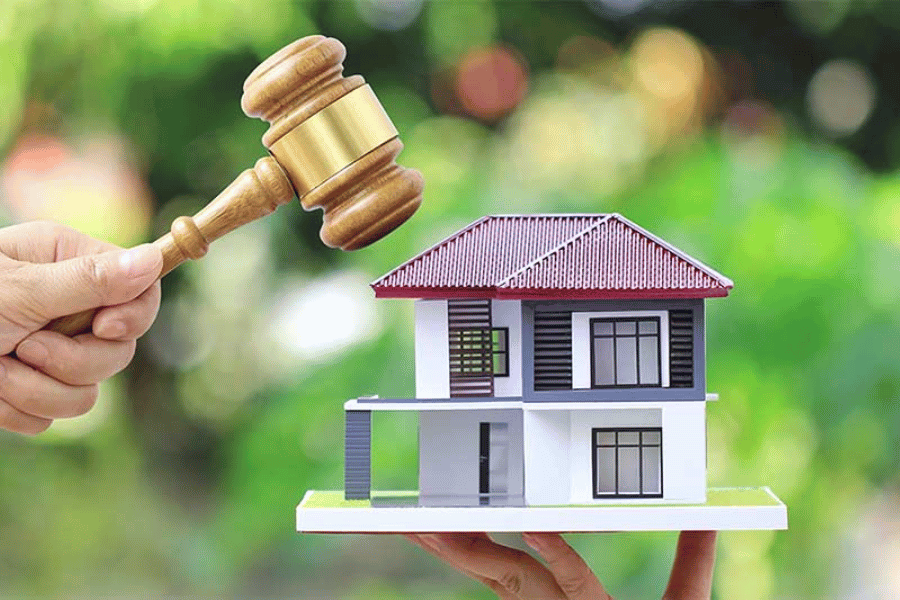
The CC&Rs (covenants, conditions, and restrictions) will explain the fines that can be imposed for violating the HOA rules of regulations.
Paying your HOA fee on time is extremely important. Missing a payment or deciding not to pay can cause serious repercussions, including losing your home. If you are late paying your dues, your homeowner's association can place liens on your home and even foreclose on those liens. If you plan to sell your home in the future, the lien must be paid and taken care of before you can sell. The HOA can go through with the foreclosure even if you are paying your mortgage on time, so it's important to keep up with when your fee is due. A less severe repercussion is being charged a late fee or interest until it's paid.
An HOA can also restrict or limit your access to common areas or amenities in the event of late or missed payments. If you continue to miss payments, the HOA can hire a collection agency to obtain the missed fees.
Additionally, you can be sued. Your HOA can sue you for the unpaid dues, fines, and any interests that accumulated, and they can garnish your wages to take what's owned from your bank account.
Lien: A legal claim on assets that allows the holder to obtain access to the property if debts are not paid; the right to have a demand satisfied out of the property of another; depending on the type of debt owed, liens can be attached to real property, such as a home, or personal property, such as a car or other furniture.
If you're struggling to pay your fees or are struggling financially, reach out to your HOA and try to set up a payment plan. More often than not, they are willing to help you as long as you are upfront about your situation.
Foreclosure: a method of enforcing payment of a debt secured by a mortgage, deed of trust, or lien on real property by selling the real property and applying the proceeds of the sale to satisfy the debt. As a result of the foreclosure, the property owner loses all rights in the property.
CC&Rs: legal terms that affect the rights and responsibilities of a property owner (homebuyer); a legal document that is filed with the county recorder's office and made part of the official real estate records that run with the land that is part of the community.
Board of directors
The board of directors commonly determines your HOA fee for your association. The HOA board of directors has the authority to make and enforce community regulations designed to protect property values and the communities well-being. They also manage the finances. Regarding financing, the board of directors will often ask for input from the members to appropriately agree upon budgets. Your fees can go towards maintaining the entrance sign, landscaping, and common areas, such as facilities, swimming pools, party rooms, etc.
Rules of an HOA
The rules of an HOA can vary, but some are common for every association. HOA rules cover your homeownership rights, and upon signing, you agree to abide by these legally binding rules. The rules you are expected to follow can be found within the association's covenants, conditions, and restrictions (CC&Rs) and apply to every community member - including homeowners and tenants.
Some rules an HOA will impose include restrictions on your landscape choices, including types of acceptable plants and trees, and on your exterior decor, including the color of your house, front door, or roof shingles. Other rules include fencing type and height limits, outdoor structures, decks, pools, maintenance standards, etc.
Most HOAs will also regulate parking. They do this to ensure the streets aren't overcrowded and you're not causing danger to your neighbors. Parking limitations can include the number of vehicles that can park on your property, regulations on street parking, and bans on recreational vehicles, boats, lawn equipment, bicycles, etc.
Another common HOA restriction is pets. Pet restrictions often include the number of pets allowed in your home, the size of the pets, and spay or neuter guidelines. When bringing a pet into your home, looking at the HOAs fencing regulations and noise levels is essential. Lastly, HOAs commonly regulate occupancy limits and renting or subletting bans.
Statistics
Monthly HOA fees average $170, according to U.S. Census Bureau American Housing Survey estimates. The majority of homeowners in HOAs pay less than $50 a month.
As of 2021, 74.2 million Americans, or 29 percent of the country's population, live in homeowner's associations, condominium communities, or co-ops, according to the Community Associations Institute (CAI).
Homes in associations have a collective value of $11 trillion, according to the Community Associations Institute.
California has the highest number of associations, at more than 50,000, closely followed by Florida, at 49,420, according to the Community Association Institute.
66.9% of new homes completed in 2021 are part of HOA communities.
72% of new homes in the South are in HOAs, down 0.14% YoY.
Questions to ask before purchasing a home in an HOA
1. How often has the HOA increased fees in recent years?
2. What services do these fees cover?
3. Does the HOA have reserve funds for long-term repairs and maintenance?
4. Does the HOA have a history of charging special assessments?
5. How much is the HOA fee?
6. Is the fee due monthly, quarterly, annually, etc.?
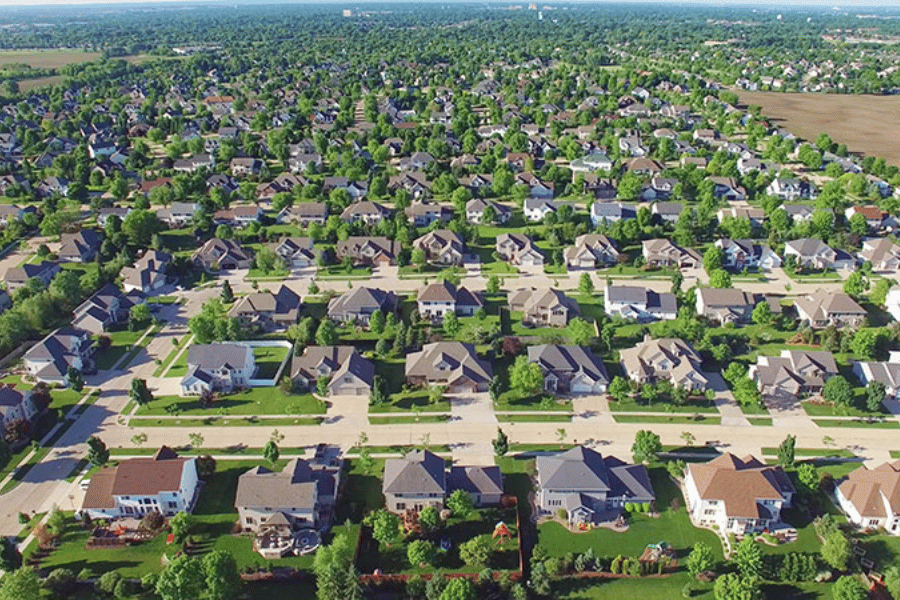
What is an HOA fee? - Final Thoughts
When you're looking to purchase a single-family home, townhouse, or condominium in North Carolina and many other states, the odds are that your new home will come with a homeowner's association. These associations enforce and regulate the community's rules and ensure that the community is always in the best shape. When purchasing a home in an HOA, you will be required to pay a monthly or annual fee. As previously stated, your fee can go towards landscaping, maintenance and repairs, utilities, staffing, insurance, and more. A lot of buyers aren't sure exactly what their fee is being used for, so it's essential to read your association's CC&Rs ahead of time! While the fee can get costly, a homeowner's association benefits your community and keeps the area safe and clean.
So, if you're considering purchasing a home in an HOA, we'd be happy to help! Here at Raleigh Realty, we specialize in the home buying and selling process. We would love to help you find your dream home, whether that be in an HOA or not! Feel free to contact us or visit our website for more information and to be connected to one of our excellent agents.
By the end of our guide, we hope that we have answered all your questions on what an HOA fee is and what your fee is used for! If you have any additional questions, don't hesitate to ask!

Ryan Fitzgerald
Hi there! Nice to 'meet' you and thanks for visiting our Raleigh Real Estate Blog! My name is Ryan Fitzgerald, and I'm a REALTOR® in Raleigh-Durham, NC, the owner of Raleigh Realty. I work alongside some of the best Realtors in Raleigh. You can find more of my real estate content on Forbes, Wall Street Journal, U.S. News and more. Realtor Magazine named me a top 30 under 30 Realtor in the country (it was a long time ago haha). Any way, that's enough about me. I'd love to learn more about you if you'd like to connect with me on Facebook and Instagram or connect with our team at Raleigh Realty. Looking forward to connecting!

